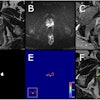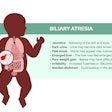Giving radiotherapy at a lower overall dose in fewer, higher doses over a shorter amount of time is at least as safe and effective as the current standard for most women with early breast cancer, concluded a study published online in Lancet Oncology.
A group from the U.K.'s Institute of Cancer Research and several other institutions found that three weeks of radiotherapy was as good as the five weeks still used in many countries, with less damage to healthy tissue. Furthermore, the treatment is more convenient for women and less expensive, explained co-author Dr. John Yarnold in a statement.
Yarnold and colleagues used data collected between 1999 and 2002 for the U.K. Standardisation of Breast Radiotherapy (START) trials. The trials recruited 4,451 women from 35 radiotherapy centers across the U.K. (Lancet Oncology, September 19, 2013).
The first START trial compared the international standard, a total dose of 50 Gy delivered in 25 doses of 2 Gy over five weeks, with a total dose of 41.6 Gy in 3.2-Gy increments and a total dose of 39 Gy in 3-Gy increments in 13 treatments over five weeks. The second START trial compared the standard with a total dose of 40 Gy delivered in 15 doses of 2.67 Gy over three weeks.
Even after 10 years, tumor control rates in the first START trial were similar between the three schedules, with very few women experiencing a relapse of their cancer, the researchers found. In the second START trial, the number of women whose cancer had returned remained similar for both schedules at 10 years. The outcomes were the same regardless of age, tumor grade, stage, or chemotherapy use.



















